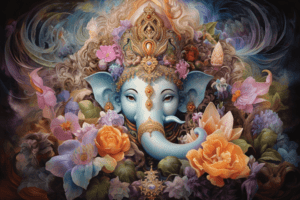Hanuman Chalisa Writer For Great Protection and Wellbeing
The Hanuman Chalisa, a devotional hymn dedicated to Lord Hanuman, holds profound significance in Hinduism. Comprising 40 verses, it encapsulates the virtues, strength, and devotion of Lord Hanuman, a prominent deity revered for his unwavering dedication to Lord Rama, hero of the epic Ramayana. The authorship of the Hanuman Chalisa is traditionally attributed to Goswami Tulsidas, a revered saint, poet, and philosopher who lived in the 16th century.
Tulsidas’s Life and Spiritual Journey
Goswami Tulsidas was born in 1532 in Rajapur, Uttar Pradesh, India. His early life was marked by spiritual inclinations, and he dedicated himself to the worship of Lord Rama from a young age. Tulsidas embarked on a spiritual journey seeking deeper understanding and enlightenment, eventually becoming a prominent saint and poet.
The Composition of Hanuman Chalisa
Tulsidas’s devotion to Lord Hanuman and his profound understanding of Hindu scriptures inspired him to compose the Hanuman Chalisa. The Chalisa, written in Awadhi, a dialect of Hindi, is structured in the form of 40 verses, each verse known as a “chaupai” or a quatrain. These verses are woven together with rhythmic precision, creating a powerful and melodious prayer.
The Devotion to Lord Hanuman
The Hanuman Chalisa begins with an invocation to Lord Hanuman, describing his divine qualities, strength, and devotion to Lord Rama. Each verse elaborates on Hanuman’s virtues, his role in the Ramayana, and the blessings he bestows upon his devotees. The Chalisa is imbued with devotion, humility, and reverence, making it a cherished prayer for millions of Hindus worldwide.
Spiritual Significance and Impact
The Hanuman Chalisa is revered not only for its poetic beauty but also for its spiritual significance. Devotees believe that reciting the Chalisa brings protection, strength, and blessings from Lord Hanuman. It is often recited daily or on Tuesdays and Saturdays, which are considered auspicious days dedicated to Lord Hanuman.
Symbolism and Philosophy (Hanuman Chalisa Writer)
The verses of the Hanuman Chalisa delve into profound philosophical concepts embedded in Hinduism. They explore themes such as devotion, surrender to the divine, the power of prayer, and the triumph of good over evil. The Chalisa serves as a spiritual guide, encouraging devotees to cultivate virtues like courage, humility, and unwavering faith.
Popularization and Legacy
Over the centuries, the Hanuman Chalisa has gained immense popularity and has been translated into numerous languages. Its universal appeal transcends geographical boundaries, and it is recited by millions of devotees worldwide, regardless of caste, creed, or nationality. The Chalisa has been sung by renowned artists, included in devotional music albums, and performed in religious ceremonies and festivals.
The Chalisa in Daily Practice
For many Hindus, reciting the Hanuman Chalisa Writer is an integral part of their daily spiritual practice. It is believed to bring peace of mind, protection from negative influences, and guidance in times of adversity. Devotees often chant the Chalisa with devotion and focus, seeking the blessings and grace of Lord Hanuman in their lives.
The Hanuman Chalisa is a profound and revered hymn dedicated to Lord Hanuman, a central figure in Hindu mythology known for his unwavering devotion and incredible strength. The Hanuman Chalisa is widely recited and cherished by millions of devotees around the world, and its authorship is attributed to the esteemed saint and poet, Goswami Tulsidas.
Tulsidas, often referred to as “Hanuman Chalisa Writer,” was a prominent figure in the Bhakti movement of medieval India. He lived during the 16th century in present-day Uttar Pradesh, India, and his life was deeply influenced by his devotion to Lord Rama, the seventh avatar of Vishnu, and his ardent reverence for Hanuman.
The story behind the creation of the Hanuman Chalisa is steeped in spirituality and divine inspiration. Legend has it that Tulsidas had a profound encounter with Lord Hanuman, who appeared before him in the form of a young boy. This divine encounter took place in the sacred city of Varanasi, also known as Kashi, a place renowned for its spiritual significance in Hinduism.
Conclusion
The Hanuman Chalisa stands as a timeless and revered prayer in Hinduism, embodying the devotion, strength, and wisdom of Lord Hanuman. Tulsidas’s authorship of this divine hymn has left an indelible mark on the spiritual landscape of India and continues to inspire millions to seek divine grace, cultivate virtues, and deepen their spiritual connection with Lord Hanuman.






